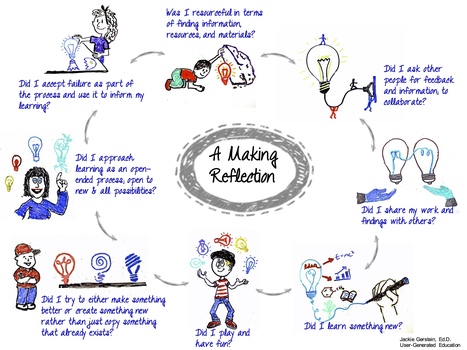Jackie Gerstein is an experienced educator who has been working as a classroom teacher and pre-service teacher trainer for years. With a background in experiential learning, Gerstein is excited about current trends in education that have more people excited to try project-based learning, maker education and other approaches that let students get hands-on with their learning.
She hopes all the excitement turns into robust, meaningful change in how mainstream teachers educate. To do that, she says it’s crucial that teachers not only focus on the materials and tools of a maker activity, but also carefully frame it and reflect upon it to make sure learning happens.
“If we don’t create a process of reflecting and framing them, then we are leaving learning up to chance,” Gerstein said on a panel about makerspaces hosted at the International Society of Technology in Education (ISTE) conference.
To frame lessons, Gerstein thinks carefully about her goals for the lesson and then makes sure the kids are thinking about those goals, too, by asking essential questions. If the goal is to meet certain standards, the class might have a brief discussion of the standards in question, framed in kid language. Or the teacher might ask, “How would an inventor or scientist approach this problem?”
Research and publish the best content.
Get Started for FREE
Sign up with Facebook Sign up with X
I don't have a Facebook or a X account
Already have an account: Login
News, reviews, resources for AI, iTech, MakerEd, Coding and more ....
Curated by
John Evans
 Your new post is loading... Your new post is loading...
 Your new post is loading... Your new post is loading...
|










